You Knew It Was A Scam All The Time Right?
Have you ever noticed that events seem more predictable after they have already happened? The results of an election, for example, often seem more obvious after the tallies have been counted. They say that hindsight is 20/20. In other words, things always seem more obvious and predictable after they have already happened.
In psychology, this is what is referred to as the “Hindsight Bias”, and it can have a major impact on not only your beliefs but also on your behaviors.
It can have a profound impact on victims as they struggle to make good decisions after the scam ends!
Let’s take a closer look at how the hindsight bias works and how it might influence some of the beliefs you hold as well as the decisions you make on a day-to-day basis.
Why Bother With The Psychology Of Your Brain?
Why do we spend time trying to help scam victims understand how their brains work? Specifically, work against them? That’s a good question!
The reasons are fairly simple.
First, you cannot recover from something unless you understand what it was that happened. Simply saying you were scammed is too simplistic. There were reasons why it happened and understanding those will help you reduce shame, blame, and guilt. But also understanding why helps you change your behaviors to prevent it in the future.
But another reason is that the scam did not happen in a vacuum. Your mind allowed it to happen, but even after it is over, that same mind is making all kinds of new choices and decisions that can be just as flawed.
By really understanding some of these foundational cognitive processes you may be able to alter your mental gears to be safer, sounder, and smarter about what you do now and into the future. Isn’t that something that would be good to do?
How Hindsight Bias Affects How We View the Past
What Is Hindsight Bias?
The term hindsight bias refers to the tendency that people have to view events as more predictable than they really are.
Before an event takes place, while you might be able to offer a guess as to the outcome, there is really no way to actually know what’s going to happen. (Unless you are a Probability Scientist and calculate it out, but even then it is just probabilities!)
After an event, people often believe that they knew the outcome of the event before it actually happened. This is why it is often referred to as the “I knew it all along” phenomenon.
After your favorite team loses the Super Bowl, you might feel convinced that you knew they were going to lose (even though you didn’t feel that way before the game). The phenomenon has been demonstrated in a number of different situations, including politics and sporting events. In experiments, people often recall their predictions before the event as much stronger than they actually were.
It also affects scam victims, both as part of the self-blaming mechanism and in guiding their mistaken belief that they will never be scammed again, because next time they will listen to their gut that knew it was a scam from the get-go! Sadly wrong.
The researchers argue that certain factors fuel our tendency toward hindsight bias. Research shows that we selectively recall information that confirms what we know to be true and we try to create a narrative that makes sense out of the information we have. When this narrative is easy to generate, we interpret that to mean that the outcome must have been foreseeable. Furthermore, research suggests that we have a need for closure that motivates us to see the world as orderly and predictable and to do whatever we can to promote a positive view of ourselves.
Hindsight Bias Examples
The hindsight bias is often referred to as the “I-knew-it-all-along phenomenon.” It involves the tendency people have to assume that they knew the outcome of an event after the outcome has already been determined.
For example, after attending a baseball game, you might insist that you knew that the winning team was going to win beforehand.
High school and college students often experience hindsight bias during the course of their studies. As they read their course texts, the information may seem easy. “Of course,” students often think after reading the results of a study or experiment. “I knew that all along.”
Scam victims often think that they knew it was a scam. If only they had paid more attention, or listened to someone, or stopped when they knew. It is obvious in hindsight because by then they knew it was a scam.
This can be a dangerous habit for anyone to fall into, however, particularly when a life-changing moment approaches. By assuming that they already knew the information, they might fail to adequately analyze future situations where their safety is at stake.
Another word for this is an “Assumption.”
When it comes to scams & cybercrime, however, the presence of this belief can lead anyone into a multitude of wrong directions.
It can affect how you develop a bias against learning the reality of the subject (scams) because you already know how to spot them and how to avoid them, you just did not listen to yourself last time – but you really know it all now. It can affect how you overemphasize your own skills and behaviors by believing that you have this nailed down, when in fact you don’t have the skills or the knowledge to navigate the online world safely.
The tendency to assume that you ‘knew-it-all-along” is just another variation of the Confirmation Bias that blinds victims from reality. They only see what they want to be real. Being able to correctly recognize biases is a life-saving skill in a world filled with predators.
Hindsight Bias – An Explanation
What exactly causes this bias to happen?
Researchers suggest that three key variables interact to contribute to this tendency to see things as more predictable than they really are. More “already known” than they were.
- Cognitive: People tend to distort or even misremember their earlier predictions about an event. It may be easier to recall information that is consistent with their current knowledge or beliefs – this is one of the reasons why witnesses can be very unreliable or change their stories over time.
- Metacognitive: When we can easily understand how or why an event happened, that event can seem like it was easily foreseeable.
- Motivational: People like to think of the world as a predictable place. Believing an outcome was “inevitable” can be comforting for some people.
When all three of these factors occur readily in a situation, the hindsight bias is more likely to occur.
An example: When a movie reaches its end and we discover who the killer really was, we might look back on our memory of the film and misremember our initial impressions of the guilty character. We might also look at all the situations and secondary characters and believe that given these variables, it was clear what was going to happen. You might walk away from the film thinking that you knew it all along, but the reality is that you probably didn’t.
Think about your scam for a moment? Almost 100% of all scam victims, when asked after the scam ended, will say that they saw red flags early on and ignored them. That they knew it was a scam all along. But is this really real, or is it an adaptation to help each victim deal with their ignorance about scams – in other words, a rationalization – to help reduce feelings of guilt and shame?
Think about it from another perspective. Which is more acceptable to the after-scam person’s self-image? That they knew nothing, had no clue, and that someone easily got the best of them? Or, that they really knew it all the time, but were just not really listening to themselves? One makes the person feel completely defenseless and vulnerable, and the other explains that they were not so vulnerable but just careless!
Ironically, the first of those scenarios is guiltless – you just did not know. The second comes with guilt and shame because you let it happen.
Being able to set aside the Hindsight Bias actually can make recovery easier because you can then accept that you were not to blame.
However, another potential problem with the Hindsight Bias – with this way of thinking is that it can lead to overconfidence. If you mistakenly believe that you have exceptional foresight or intuition, you can become too confident and more likely to take unnecessary risks in your future. Such as falling for another scam. Or risks might be financial, such as placing too much of your nest egg in a risky stock portfolio. They might also be emotional, such as investing too much of yourself in a future bad relationship. But it also can easily translate into a mistaken belief that you have knowledge that you do not have – this is partly where Savior Syndrome comes from – victims believing they know how to help other victims.
What Can You Do To Counteract The Hindsight Bias?
Researchers show that by mentally reviewing potential outcomes, people might gain a more balanced view of an outcome’s apparent inevitability.
You should consider the opposite! This may be an effective way to get around our cognitive fault, at least in some cases. When we are encouraged to consider and explain how outcomes that didn’t happen could have happened, we counteract our usual inclination to throw out information that doesn’t fit with our narrative. As a result, we may be able to reach a more nuanced perspective of the causal chain of events.
So for scam victims, try to:
- Try to accept that you did not know about scams and that you had no defense against them
- As you look back try to realize that your own biases played a role in both enabling the scam, but much more import in what is now happening and the decisions you are now making.
- Try to ask of each situation “what didn’t you see?”
- Try to be more open to looking at situations that come up to see how your own biases direct you to a decision or outcome.
- Try not to trust the 20/20 hindsight too much because it might just be false.
This article is by:
SCARS™ – Society of Citizens Against Relationship Scams Inc.
A scams & financial fraud crime victims assistance & crime prevention nonprofit organization headquartered in Miami Florida USA & Monterrey NL Mexico, with partners in more than 60 countries worldwide
If you are a Victim sign up for our FREE SCARS Support Groups at support.AgainstScams.org
To learn more about SCARS, or to Join, Volunteer, or Donate visit: AgainstScams.org
To see Scammer Photos visit www.ScammerPhotos.com
Contact Us: Contact@AgainstScams.org
Do You Need Support?
Get It Now!
SCARS provides the leading Support & Recovery program for relationship scam victims – completely FREE!
Our managed peer support groups allow victims to talk to other survivors and recover in the most experienced environment possible, for as long as they need. Recovery takes as long as it takes – we put no limits on our support!
SCARS is the most trusted support & education provider in the world. Our team is certified in trauma-informed care, grief counseling, and so much more!
To apply to join our groups visit support.AgainstScams.org
We also offer separate support groups for family & friends too.
Become a
SCARS STAR™ Member
SCARS offers memberships in our STAR program, which includes many benefits for a very low annual membership fee!
SCARS STAR Membership benefits include:
- FREE Counseling or Therapy Benefit from our partner BetterHelp.com
- Exclusive members-only content & publications
- Discounts on SCARS Self-Help Books Save
- And more!
To learn more about the SCARS STAR Membership visit membership.AgainstScams.org
To become a SCARS STAR Member right now visit join.AgainstScams.org
To Learn More Also Look At Our Article Catalogs
Scam & Crime Types
More SCARS
- ScamsNOW Magazine – ScamsNOW.com
- ContraEstafas.org
- ScammerPhotos.com
- AnyScam.com – reporting
- AgainstScams.org – SCARS Corporate Website
- SCARS YouTube Video Channel
Statement About Victim Blaming
Some of our articles discuss various aspects of victims. This is both about better understanding victims (the science of victimology) and their behaviors and psychology. This helps us to educate victims/survivors about why these crimes happened and to not blame themselves, better develop recovery programs, and to help victims avoid scams in the future. At times this may sound like blaming the victim, but it does not blame scam victims, we are simply explaining the hows and whys of the experience victims have.
These articles, about the Psychology of Scams or Victim Psychology – meaning that all humans have psychological or cognitive characteristics in common that can either be exploited or work against us – help us all to understand the unique challenges victims face before, during, and after scams, fraud, or cybercrimes. These sometimes talk about some of the vulnerabilities the scammers exploit. Victims rarely have control of them or are even aware of them, until something like a scam happens and then they can learn how their mind works and how to overcome these mechanisms.
Articles like these help victims and others understand these processes and how to help prevent them from being exploited again or to help them recover more easily by understanding their post-scam behaviors. Learn more about the Psychology of Scams at www.ScamPsychology.org


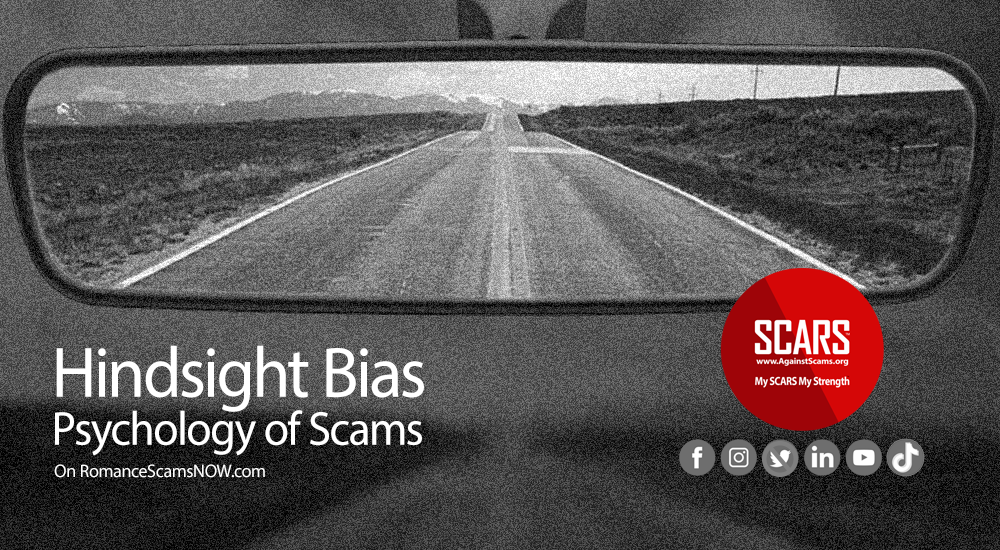
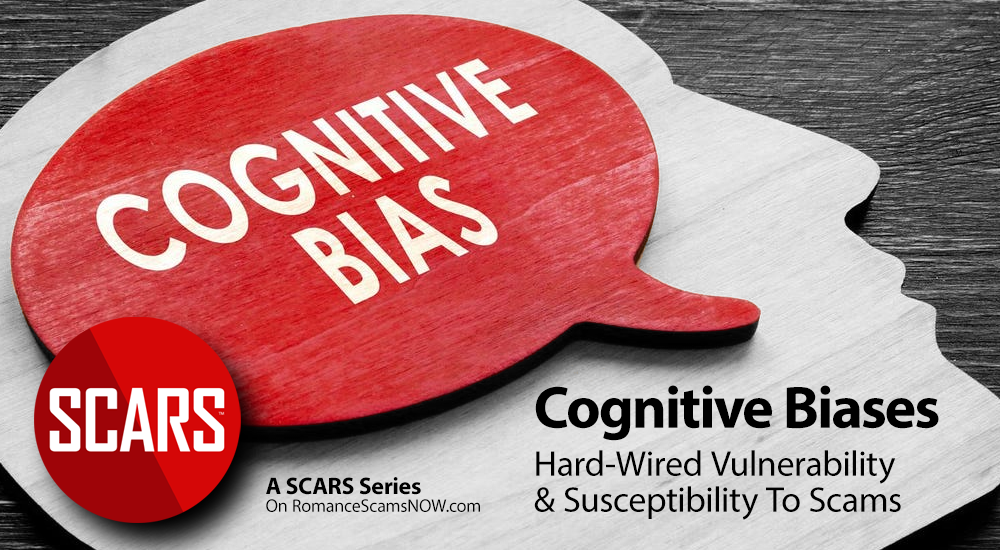
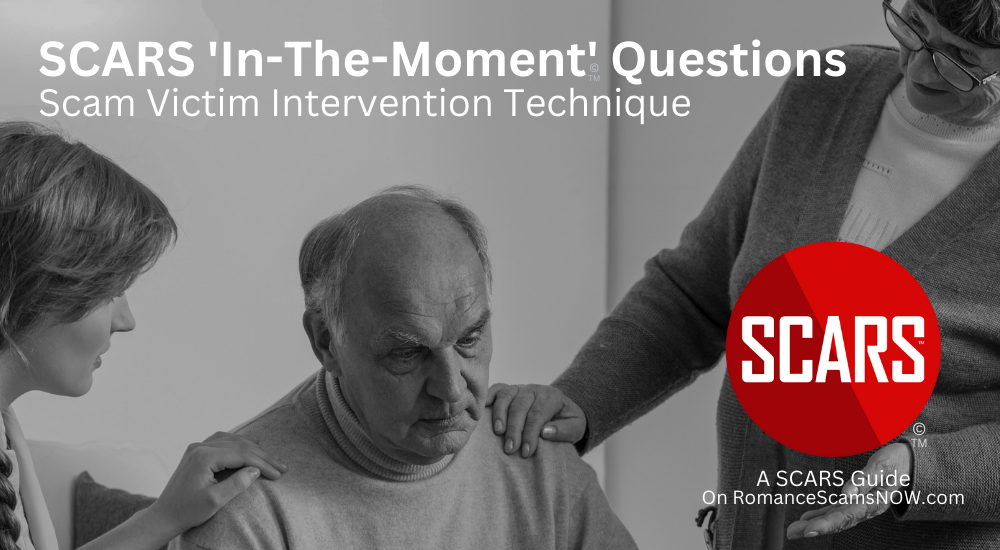

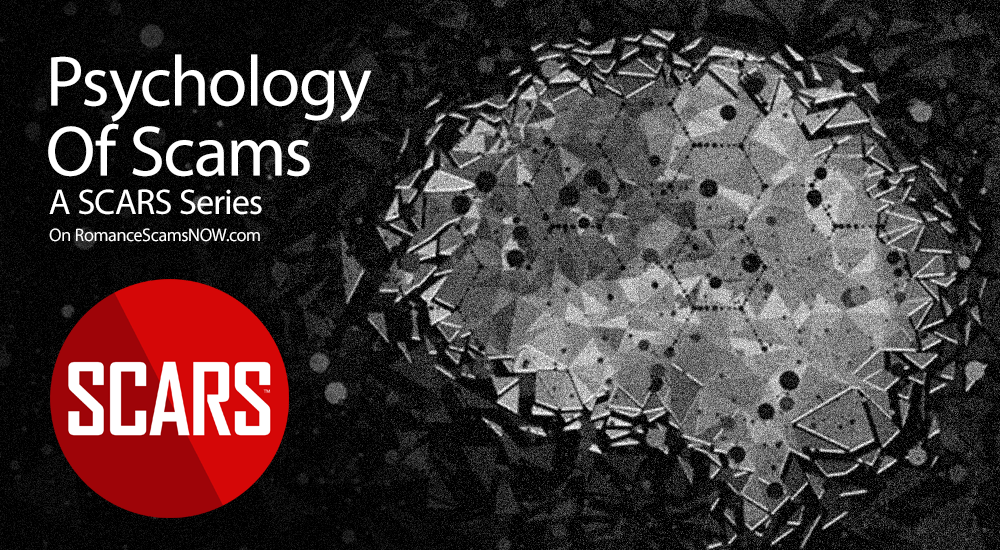
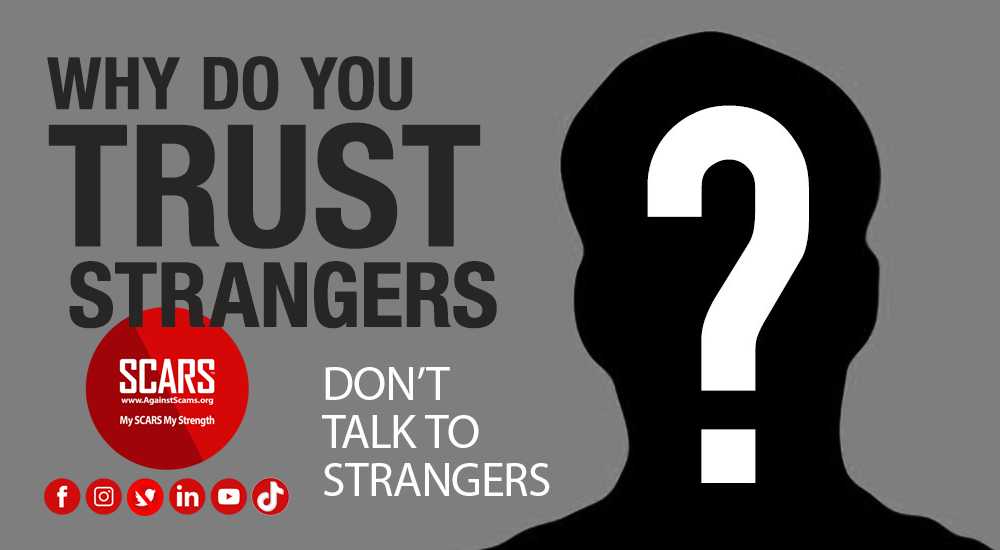










![An Example of How Scammers Use Emergency Scams - 2014 [UPDATED 2024] - on SCARS RomanceScamsNOW.com](https://romancescamsnow.com/wp-content/uploads/2014/06/emergency-scams.png)

Thanks so much for the publication of this article. For at least two months after my last scam ended, I was struggling to make decisions on everything . And even now, I take my sweet time to decide on what to do, even in small things.
I am trying to be aware of consequences and complications. I ask people that could potentially help me make a good decisions when it comes to legal or financial matters. I feel more confident on talking about what happened to me more and more, as times passes by. Acceptance of what happened and the aftermath financial situation has been the clue, in my opinion.